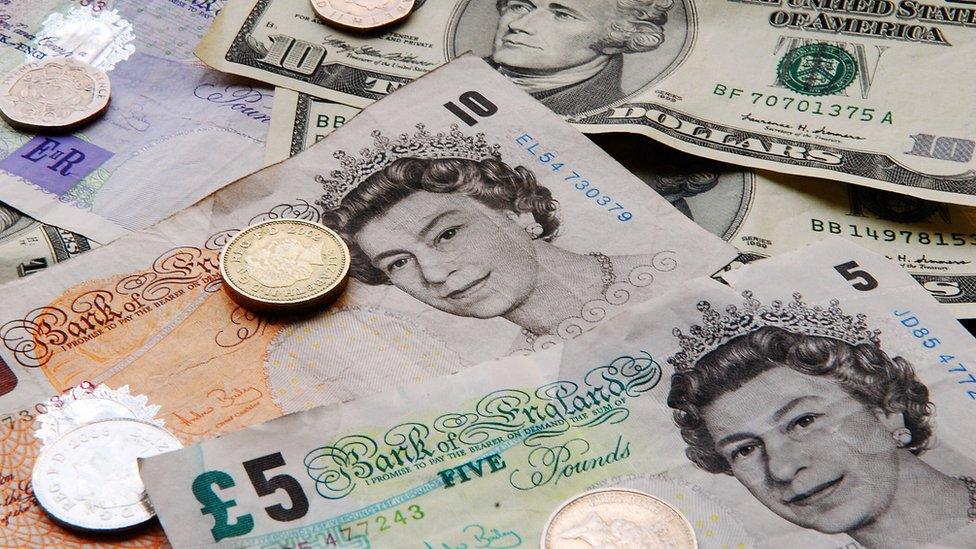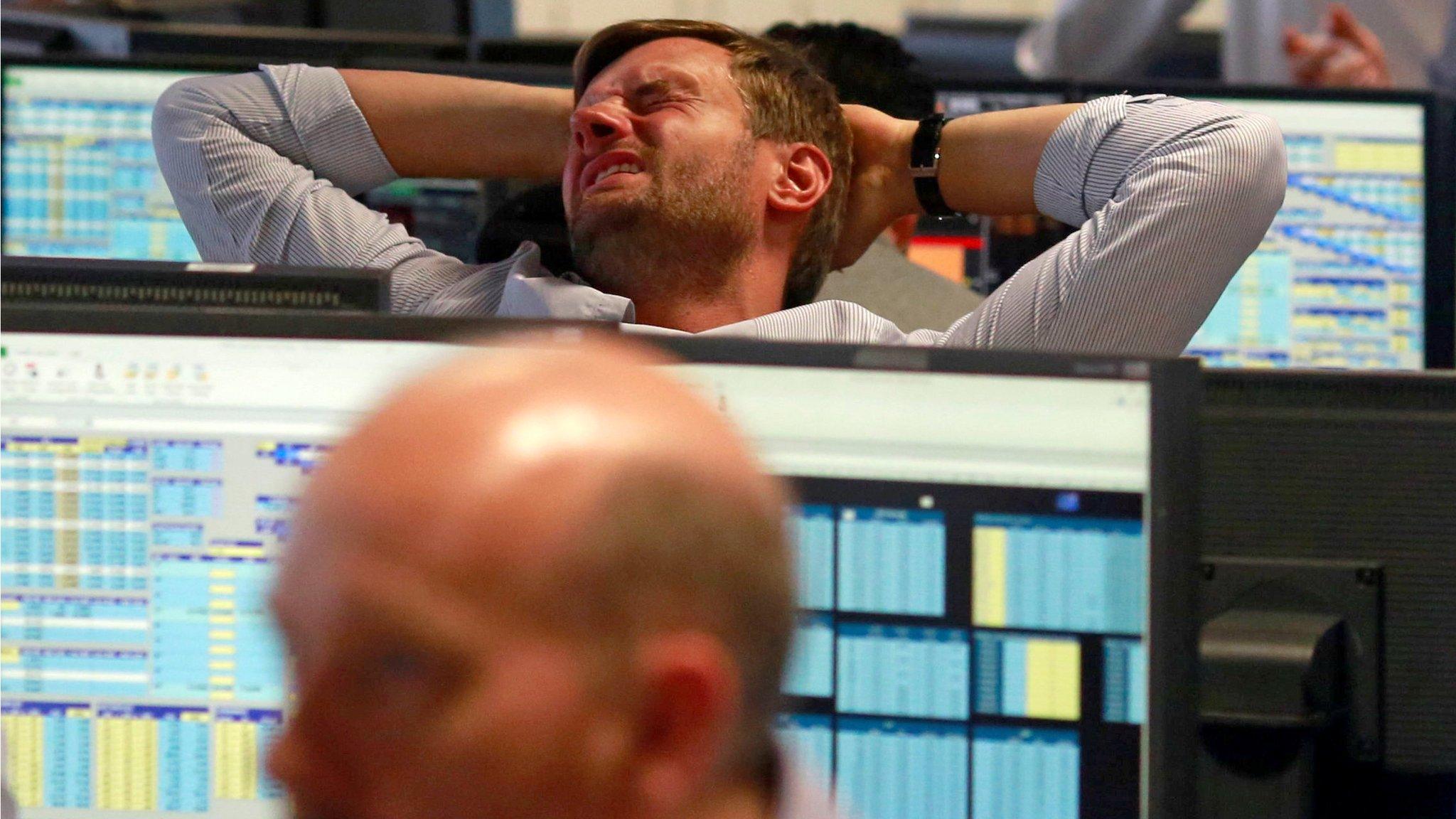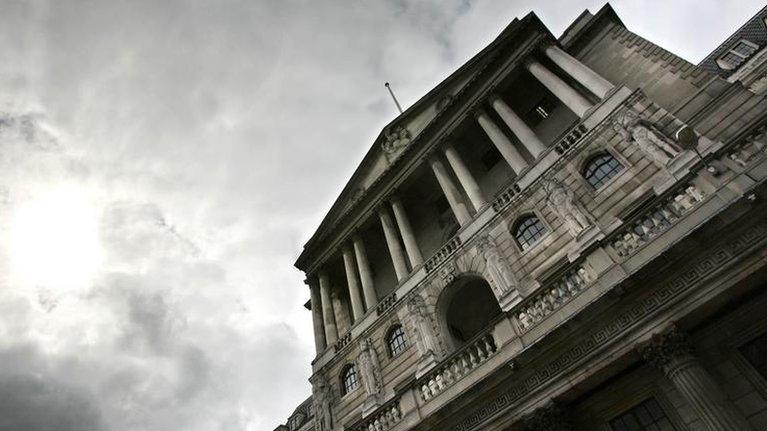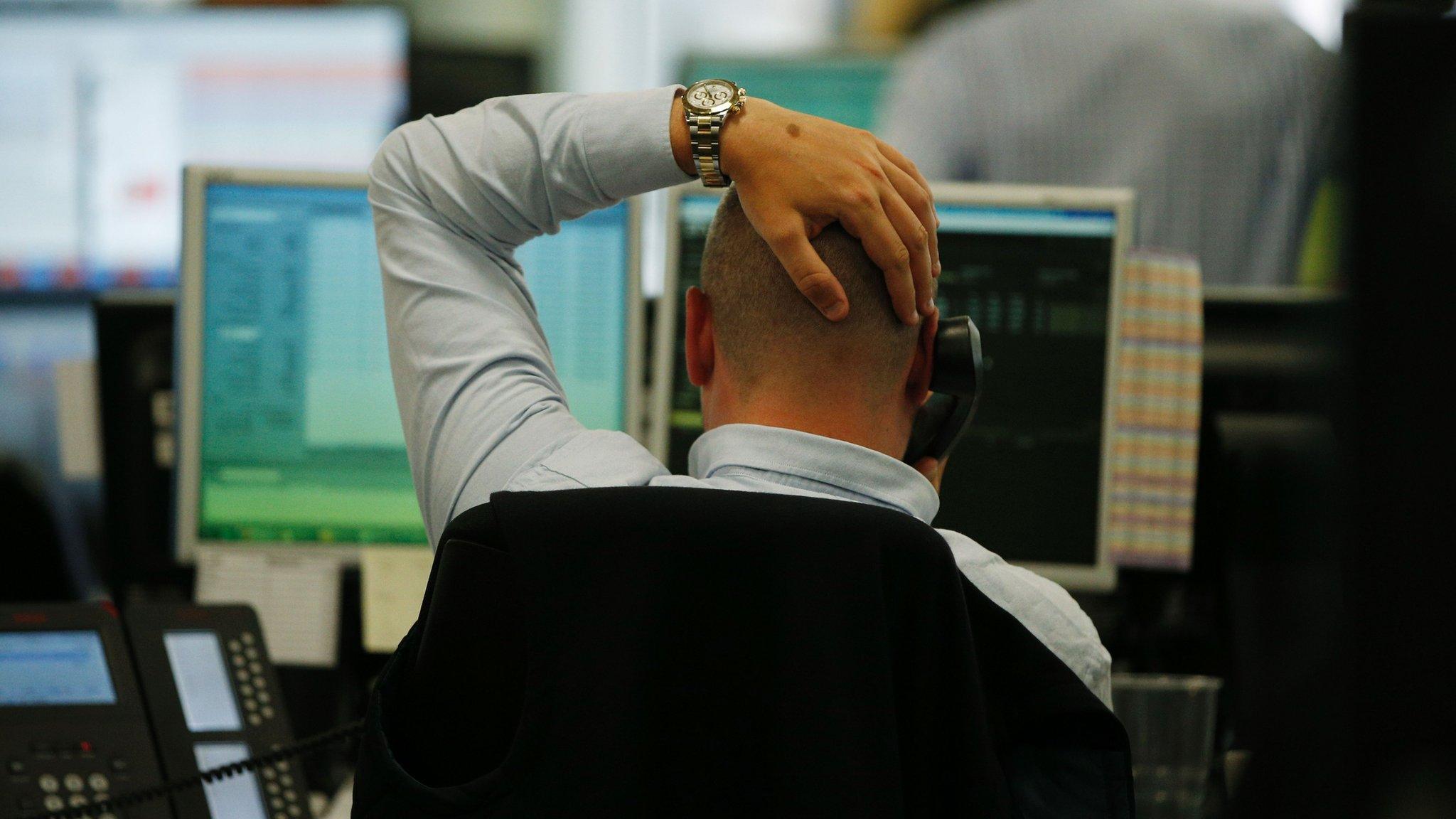Sterling falls to new low against the dollar in Asia trade
- Published

The pound has hit a new low in Asian trading as concerns about the UK's vote to leave the European Union continue to weigh on investor confidence.
It touched 1.2798 against the dollar on Wednesday, a 31-year low, before recovering slightly to $1.2963.
The pound has now fallen about 14% against the dollar since hitting $1.50 ahead of the referendum result.
US government bond yields also fell to record lows as investors rushed to put money in perceived havens.
The falls follow decisions by fund managers, including Standard Life and Aviva, to stop investors withdrawing money from their UK property funds.
They said the high levels of uncertainty caused by the referendum had led to investors rushing to pull their money out.
Investor confidence was further undermined by the Bank of England's warning on Tuesday that there was evidence some of the risks it identified related to Brexit were already emerging.
Disappointing data on the UK services sector and a decline in US factory orders also fuelled pessimism.
'More uncertainty'
Financial markets were shaken by the Brexit vote two weeks ago, with trillions of dollars lost from global equity markets and currencies like the pound suffered steep falls.
They have since recovered some ground on speculation central banks will ramp up stimulus measures to stabilise the markets.
However, investors now face more uncertainty after UK Prime Minister David Cameron, who campaigned for the UK to stay in the EU announced his resignation, leading to a sharply contested ballot to replace him as leader of the Conservative Party and PM.
As a result, there has been a rush to buy up government debt, another haven investment, from certain countries.
This includes 10-year US, UK, Swiss and German bonds which have seen their yields at or near their lowest on record.
Yields on Australian and Japanese government bonds have also hit record lows.
High demand tends to push up bond prices, and when the price of bonds rises their yield falls.
Asian markets
The renewed Brexit concerns hit Asian stock markets. Japan's benchmark Nikkei 225 share index closed 1.85% lower at 15,378.99, but it had been more than 3% lower at one point during the day.
The broader Topix index shed 1.8% to 1,234.20 as the yen, another haven investment, strengthened against the US dollar.
South Korea's Kospi index fell 1.9% to close at 1,953.12 and its currency the won extended losses to a one-week low.
Australia's S&P/ASX 200 shares index lost 0.6% to shut at 5,197.50.
Hong Kong's Hang Seng index closed down 1.2% at 20,495.29, although the Shanghai Composite finished the day up 0.4% at 3,017.29.
Stock markets in Indonesia, India, Singapore, Malaysia and the Philippines are closed for holidays.
- Published6 July 2016

- Published5 July 2016

- Published5 July 2016

- Published5 July 2016
